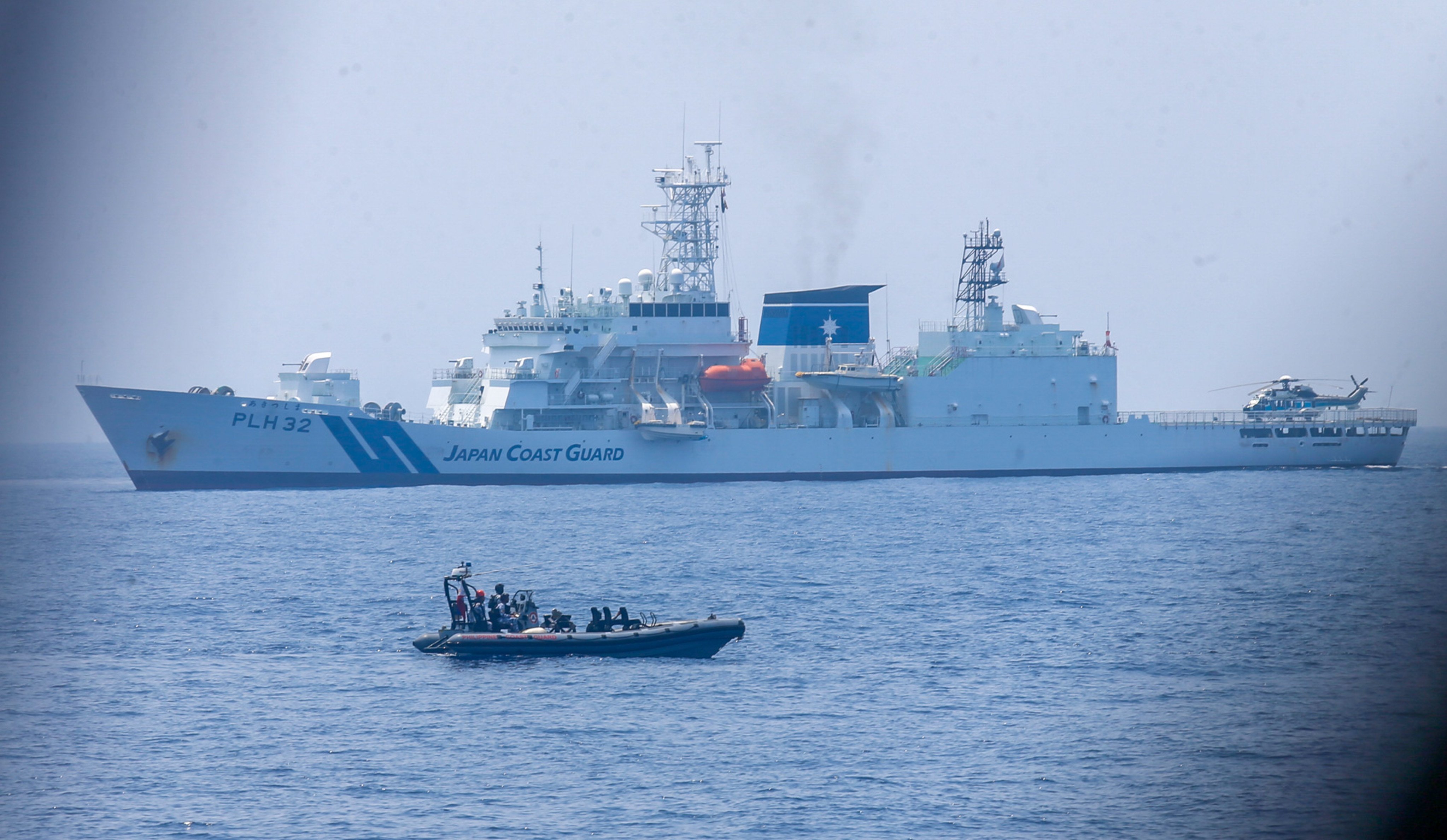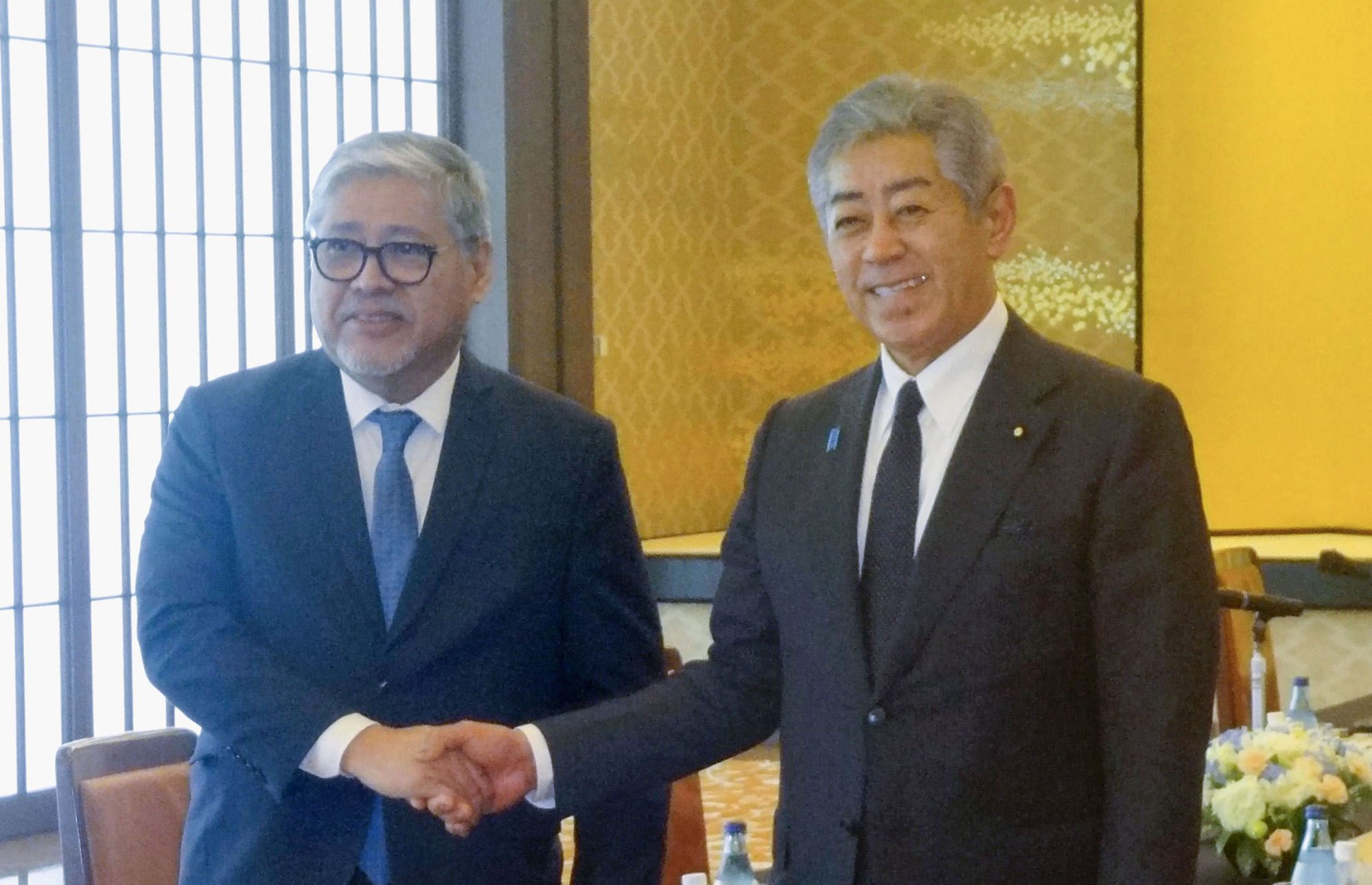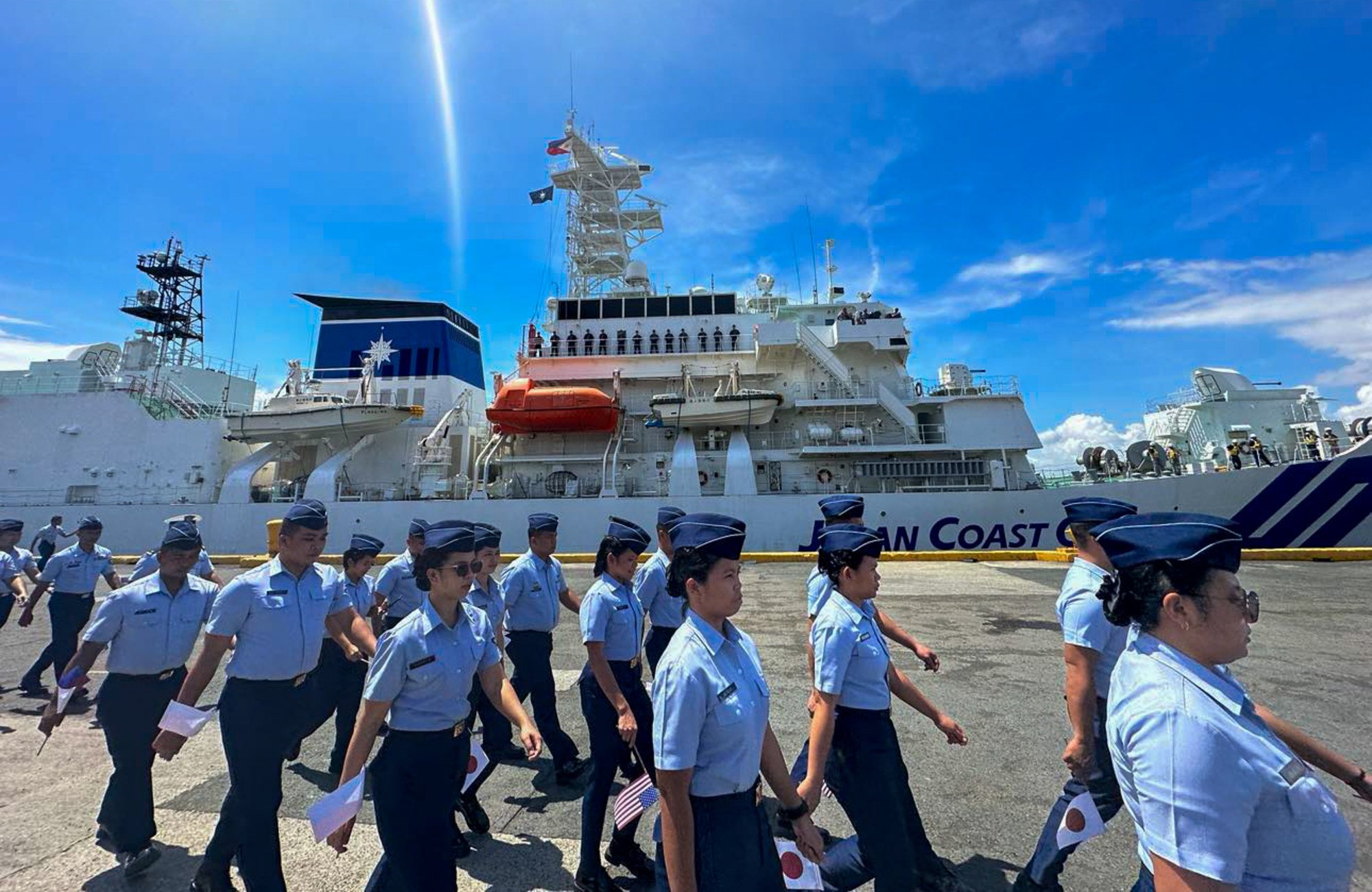Will Japan’s ‘near alliance’ with the Philippines fuel China’s suspicions?
A formal alliance between Tokyo and Manila could lead to increasing tensions with Beijing in the Indo-Pacific region, an analyst warns

Japan’s view that its ties with the Philippines are at a “near-alliance status” has been welcomed as a sign of the commitment by both countries to tackle their perceived common threats, even as analysts warn that any formalisation towards deeper security cooperation could worsen regional tensions.
Speaking in Tokyo on May 28, Foreign Minister Takeshi Iwaya hailed the close partnership in the presence of Philippine Foreign Affairs Secretary Enrique Manalo.
Iwaya and Manalo discussed strengthening defence cooperation, including a prospective agreement for Japan and the Philippines to share classified information, according to a statement released by the Japanese embassy in Manila.
They discussed the progress of the implementation of the Japan-Philippines Reciprocal Access Agreement (RAA), a pact signed in July last year aimed at enhancing maritime security in the South China Sea amid China’s growing assertiveness in the disputed waters.
The RAA allows the deployment of Japanese and Philippine forces for joint military drills in each other’s territory. Both countries have also started talks on boosting economic collaboration and supply chain resiliency and working towards such an agreement.
Tokyo and Manila face similar maritime challenges in the East China Sea and the South China Sea, respectively, while their military alliances with Washington have also deepened China’s suspicions, particularly over the nearby Taiwan Strait, according to analysts.

“It is in the context of these common threats and absence of a formal treaty that various areas of security cooperation between both countries coalesce into a near-alliance,” Muhammad Faizal Abdul Rahman, a research fellow at the S. Rajaratnam School of International Studies in Singapore, told This Week in Asia.
Such a status could result in more cooperation related to the defence of Japan’s southernmost islands and the Philippines’ northernmost islands during a contingency over Taiwan, more help provided by Tokyo to boost the capabilities of the Philippine air force and navy under its Official Security Assistance framework, and increasing economic collaboration in the event of a crisis, Faizal said.
It was feasible for Japan and the Philippines to further their security collaboration, particularly as the strategic rivalry between the US and China could continue to intensify under the administration of US President Donald Trump, he added.
“The more comprehensive and meaningful partnership is crucial to maintaining the security assurances of the US because the Trump administration demands that American allies should do more for their common defence,” Faizal said.
Abdul Rahman Yaacob, a research fellow with the Lowy Institute’s Southeast Asia Programme, however, cautioned about the implications of any formal security alliance between Japan and the Philippines.
“They could work together by establishing closer defence relations through more dialogue mechanisms and exercises. Forming an alliance may alarm China and likely lead to increasing tensions in the Indo-Pacific region,” he told This Week in Asia.
A Chinese military campaign over Taiwan could draw the Philippines and Japan into the conflict due to their alliances with the US, Rahman said.
Beijing sees Taiwan as part of China to be reunited by force if necessary. Most countries, including the US, do not recognise Taiwan as an independent state, but Washington is opposed to any attempt to take the self-governed island by force and is committed to supplying it with weapons.
Taiwan is home to about 150,000 Filipino migrant workers, many of whom are employed as domestic helpers and factory workers.
There are about 2.3 million people with Japanese-Taiwanese ancestry living in Taiwan, or 10 per cent of the island’s population, according to a Taiwanese media report in February last year, citing Chinese scholar Victor Gao, head of the Centre for China and Globalisation.
Rahman noted Japan had been helping the Philippines to strengthen its maritime capabilities, such as the donation of several of its vessels to the Philippine coastguard.
Smooth implementation of operations and joint training drills arising from their contingency plans over Taiwan could be a key part of their closer partnership, according to Rahman.
For example, the RAA could allow Japanese personnel in the Philippines to help evacuate Japanese citizens from Taiwan to the Philippines, he said.

Arnaud Leveau, an assistant professor of geopolitics at Paris Dauphine University, drew comparisons of the closer cooperation between Japan and the Philippines stopping short of a formal alliance, and the experience of Nordic countries.
Denmark, Finland, Iceland, Norway and Sweden had been partnering with one another to improve their operational capabilities under the Nordic Defence Cooperation, Leveau said.
In the case of Japan and the Philippines, their collaboration could involve exercises such as in the maritime and humanitarian domains and be expanded to areas ranging from cyber defence to space-based surveillance in future, he added.
The growing alignment between Japan and the Philippines dovetails with the broader alliance involving the US and its two partners in the Indo-Pacific, according to Leveau.
“In this trilateral set-up, Japan could act as a credible regional security partner supporting the US in burden-sharing, giving Manila more options beyond just relying on Washington,” Leveau said.
The Trump administration was keen for its Indo-Pacific allies to work closer together as Washington recognised it could not deal with a rising China on its own, Rahman said.
Closer defence cooperation between Japan and the Philippines was a logical development because of their shared security concerns and limited resources, he added.
“But another important point is that it is time Asian countries are taking up more responsibilities for their defence and security needs, given that the reliability of the US as a security guarantor in the region is questionable.”